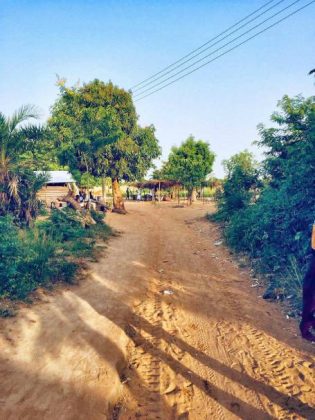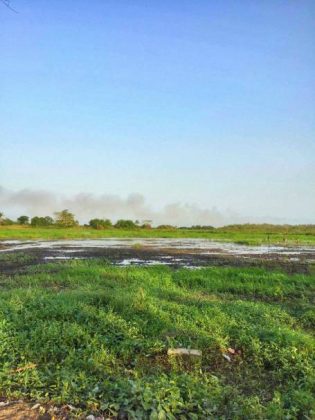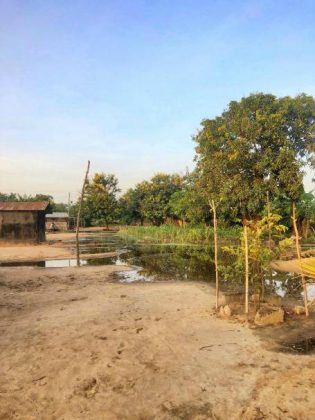This project is made possible through the partnership of WATER CHARITY and the NATIONAL PEACE CORPS ASSOCIATION. ![]()
Water Charity canceled this project because other funding was obtained.
 Location
Location
This project summary has been redacted for security reasons to omit the specific project location.
Hxxxx, South Tongu District, Volta Region, Ghana
Community Description
The community is in the South part of the Volta Region of Ghana. It is located on the main road that goes across West African countries (N1). The community is rural and has a population of about 2,300. The community is Christian and also has a few Traditionalists. The main source of income comes from farming and fishing from the river. There are a few food sellers and small shop owners but most people travel to the market every week to buy food. During the farming season, people from other communities come to live here to work, increasing the community’s activity and population. Malaria is a predominant issue along with teenage pregnancy and severe diarrhea. The community has an unfinished health facility with only one nurse and no latrines.
 Problem Addressed
Problem Addressed
The community members openly defecate all around the community and especially in the swamps where they also fetch water to use for their households. Households do not have latrines. Severe diarrhea is very common, especially among children.
Project Description
This project is to build 100 latrines in the village.
The community has expressed the need for latrines as a means to stop open defecation. A latrine committee is in place to ensure the planning and sustainability of the project.
This project will start with a CLTS intervention from the district assembly Health and Environmental Officer to educate people about open defecation. The latrines chosen by the elders are called the Digniloo and are made from plastic by a local company funded under USAID. These latrines are easy to assemble and include the slab, drums, and a vent pipe. They are easy to clean, can last up to 20 years and be removed and relocated when full.
The company will deliver the latrines to the community and demonstrate how to assemble them. Prior to the delivery, the community will have followed the instructions to dig the right pit and will then proceed to the installation of the drums and slab. The households will be given the ventilation pipe only after they build the super-structure of their latrine. Each latrine will then be inaugurated with the construction of a tippy tap.
These funds will be used to buy the latrines and their transportation to the community. The community will provide labor for the pits, materials to build the super-structures, and the tippy taps for handwashing.
 Project Impact
Project Impact
This project will impact more than 1,000 people.
Project Administration
Claire Aubry, Peace Corps Volunteer
Monitoring and Maintenance
The community members will be educated about open defecation and hand washing. They will also learn how to maintain the latrines and how to remove and relocate them so they can reuse them when they are full. The members of the latrine committee will be in touch with the local company for any information or support needed in the future. The latrine committee is also looking into ways to raise money every year for future additional latrines.
Six months after the latrines are in place, there will be an inspection along with the Health and Environmental Officer to make sure open defecation has stopped and that the latrines are being properly used and maintained.
Project Funding
Other funding for this project was obtained by the PCV.